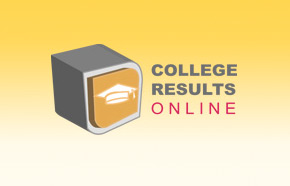How does a Homeschool student get into college?
There are a couple differences between private/public school and Homeschool. However there are many similarities.
Research the individual college(s) and find out what specific requirements are needed for homeschool students. This is where there will be similarities between the two types of schooling. Colleges are looking for an academic high school experience to include three years of math, four years of English/literature, two-three years of science three years of social studies, two-three years of foreign language, one year of visual/performing arts as well as health and fitness and electives. (*Some colleges may require more than what is listed here. This is just a basic guideline. You must find out the individual requirements for that particular college.)
With public/private schooling these classes and activities are documented with transcripts. In a homeschool environment the parents of the homeschooled student must keep rigorous documentation and samples of schoolwork. Documentation should include written records of time spent on subject, books used/read and activities.
As a homeschooler completes these courses, they put together a portfolio that documents their entire high school experience. The portfolio of documentation contains completed courses, a list of all books read, and all curriculum material used. The portfolio of high school achievement also contains proof of extra curricular activities, samples of the students writing, and proof of any other experiences or talents.
1. Begin with the end in mind. If you know your homeschooled student has the potential and interest to pursue college, start gathering and organizing information about admission requirements.
2. Maintain your student’s portfolio diligently. It will form the basis of your homemade "transcript,".
3. Contact the college(s) your student is interested in to find out if they have special admission requirements for homeschooled students. Some (Stanford, for example) have created guidelines to help homeschoolers with the application process (and Stanford has admitted numerous homeschoolers).
4. Study for the SAT/ACT test and take it in the spring of your Junior year. (If you bomb you can take it again in early summer or the following fall.)
5. Focus on areas other than transcript information. Many colleges state that certain parts of the application package, such as SAT/ACT test scores, letters of recommendation, and the application essay, are given greater weight when considering homeschoolers for admission.
6. Know the deadlines for applying to college, early is better than late.
7. Help your student prepare for college. Sometimes (and every family is different) one year or even a few college credits at a community college will give the student a feel for what college will be like.
8. Make sure your student has a clear and concise graduation goal and timeline.
Conclusion: Waiting to the last minute is stressful. Take the time prior to applying to college to have all your ducks in a row. Collect all the information and documentation that each college is requesting. And have a relaxing summer before heading off to college.
Are there any programs that provide student financial assistance to home schooled children?
Home schooled students are eligible for federal student aid for college if they have "completed a secondary school education in a home school setting that is treated as a home school or private school under State law" (Section 484(d)(3) of the Higher Education Act of 1965). Home schooled students have not been required to take the GED or take an ability-to-benefit test since the Higher Education Amendments of 1998. High school dropouts must take a GED exam or an ability-to-benefit test, but students who have completed a home schooled secondary education that satisfies the requirements of state law do not.
Many private scholarships are open to home schooled students. Some scholarships, however, require a high school diploma or GED. If a scholarship requires a high school diploma or GED, ask for a clarification or exception before applying. If you encounter resistance, it can help to point out that in 2005 the winner of the Siemens Westinghouse Competition in Math, Science and Technology's $100,000 scholarship was a 16-year-old home schooled student.
There aren't many scholarships specifically targeted at home schooled students, other than those sponsored by the Home School Foundation.





